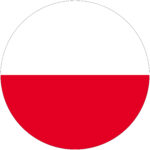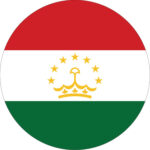Following a raft of changes to VAT rates and regulations on 1st January, the opening weeks of 2024 have continued to see a plethora of indirect tax updates announced around the world.
Here is our quickfire round-up of 10 of the headlines you need to know from this year so far:

Poland
The Polish Ministry of Finance has announced a delay to the launch of mandatory e-invoicingElectronic invoicing - widely referred to as e-invoicing - is the exchange of a digital document between a supplier and a buyer. E-invoices are issued, transmitted and received in a structured data format that enabled automatic and electronic processing. They contain data in a machine-readable format so that an AP system can read an invoice without manual data entry, leading to faster and more efficient invoicing.. The scheme, which has already been delayed from a January 2024 implementation, was due to come into effect in July 2024. It has now been postponed once again with no new date for its introduction set.

Tajikistan
The VAT rate has been reduced from 15% to 14%. It is the second step in a three-stage process to lower the standard rate by 5% over five years.

Spain
The Council of Ministers has approved a Royal Decree for an extension of the zero-rating of essential foods such as bread, colour, cheese, eggs and fruits. The zero rate, which was due to expire on 31st December 2023, will now remain in place until 30th June 2024.

France
A new 1.2% tax on streaming services was introduced on 1st January 2024. This is lower than the figure of 1.75% that was originally proposed.

Ukraine
Ukraine has approved a cut in VAT from 20% to 15%, as part of its package of support from the IMF.

Ecuador
A new VAT rate could soon be implemented in Ecuador, with new president Daniel Noboa proposing a temporary rise from 12% to 14% followed by a permanent rate of 13%.

Finland
The Finnish government has published a list of goods and services that will be reclassified to a higher VAT rate from 1st January 2025. Items include books, pharmaceuticals and public transport.

Israel
More details have been confirmed ahead of Israel’s introduction of mandatory e-invoicing in April 2024. Businesses with revenue over NIS 25,000 will be required to use electronic systems from April and will be able to use certified representatives to obtain sales invoice numbers.

Angola
Angola has retrospectively implemented a lower VAT rate on basic foods. It means sales of such items from 1st January 2023 will be subject to VAT at 5%, down from 14%.

Ireland
A consultation period to discuss Ireland’s proposed digitalisation of VAT invoicing and introduction of real-time reporting has ended. The Irish Revenue will now prepare a report on the responses and potential next steps.









